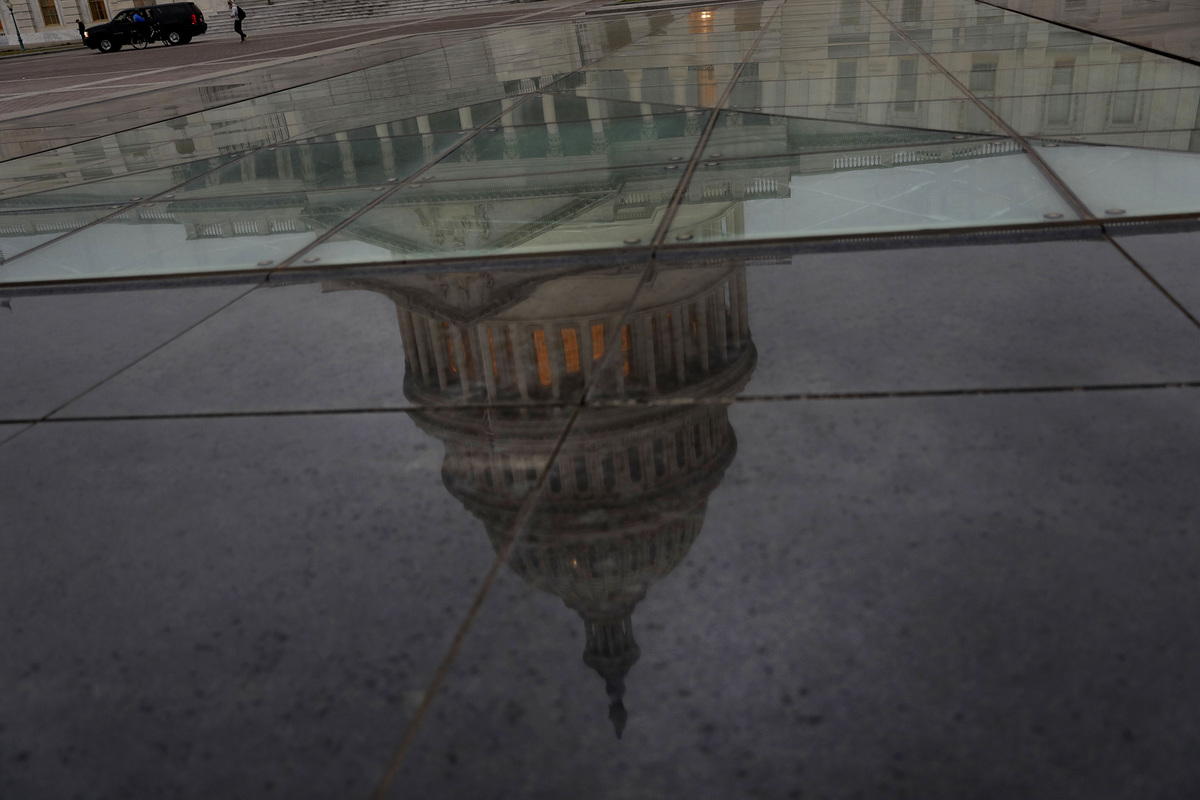
Analysts are zeroing in on the House of Representatives vote on the American Health Care Act as a linchpin for President Donald Trump’s ability to push through pro-economic growth policies -- and the market’s ability to cling to a faltering reflation trade.
A House divided over the repeal and replacement of former President Barack Obama’s Affordable Care Act -- enshrined as the Trump administration’s top legislative priority -- faces an uphill battle, reckon Wall Street analysts. Failure to reform could extend the sell-off that pushed the S&P 500 lower by drop more than 1 percent Tuesday for the first time since Oct. 11 as investors pared back bets that the administration will spark growth with tax cuts and infrastructure spending.
Thursday’s vote may be a “key litmus test” for the administration, said TD Securities fixed income strategists led by Gennadiy Goldberg, arguing that its failure in the House would spark “a significant risk-off event.”
Recent fragility in the reflation trade -- which has generally seen stocks rally at the expense of bonds -- comes at a time when benchmark 10-year U.S. Treasuries are also perched perilously close to breaking through key technical resistance at 2.40 percent, according to JPMorgan Chase & Co. analysts led by Jay Barry, which would put the lows of the year for yields in sight.
“At least some of this increased risk aversion was driven by uncertainty around the passage of the American Health Care Act, as it raises questions around the Trump administration’s ability to accomplish tax reform and infrastructure later this year,” they said.
Markets now face three basic scenarios, according to analysts, two of which would further temper risk appetite:
1. Passage of the ACHA by the House of Representatives on Thursday would bolster the case made by the Republican leadership for action on pro-growth policies this year, even though it would still need to clear the Senate.
2. Failure in the House would likely trigger protracted negotiations and postpone tax reform and infrastructure spending.
3. A last minute withdrawal of the vote amid a likely lack of legislative support, which would provide fuel for equity markets to “pare their post-election optimism” and fan a rally in U.S. bonds, according TD Securities.
“The success or failure of efforts to repeal and replace the ACA does not automatically equate to success or failure of tax reform,” writes Edward Mills, analyst at FBR Capital Markets & Co. Failure may create “a crisis moment” for Congressional Republicans and help facilitate a quick victory on an area in which they all agree: the need to cut taxes.
Market Underpinnings
“The contrarian view is that if health care fails the Republicans will increase their efforts to pass tax reform,” add Keefe, Bruyette & Woods analysts Brian Gardner and Michael Michaud, ascribing “some validity” to such a notion. KBW sees bank stocks -- which have been a key pillar of the post-election rally -- gaining if health-care uncertainty eases.
Placing such a high importance of Thursday’s vote to sustain risk appetite, however, assumes that Trump’s victory in November is the biggest factor behind the global market rally. And there are a bevy of analysts whose earnings per share estimates for the S&P 500 this year don’t presume an imminent fiscal fillip. Abundant liquidity, stability in China, an uptick in global trade, and emerging price pressures in the euro-area continue to feed the bulls, creating a buffer from any prospective delay in Trump’s legislative agenda.
“History is littered with market jitters preceding political event risks, and the vast majority of them have proven to be a fade,” said Cameron Crise, a macro strategist at Bloomberg. “While one can certainly make an argument that U.S. equities are fully valued, color me skeptical that concerns over the health-care vote are going to ring the bell to mark the ding-dong high and the onset of a new bear trend.”
Still, as the widespread rally in equities has occurred amid a sizable disconnect between “soft” measures of economic activity found in surveys and “hard” indicators of actual activity, any change in perception can be a powerful catalyst for price action.
Matt Maley, an equity strategist at Miller Tabak & Co. LLC in New York, views the vote through such a prism, contending that it has the potential to contribute to the unwinding of what he sees as “very crowded” trades including long the U.S. dollar, short U.S. Treasuries and long major U.S. equity indexes.
“We have spent a lot of time this year focusing on our belief that many people have been ‘fighting’ the reality what was going on in the bond and currency markets ... and ‘fighting’ what the realities are of DC politics,” he writes. “Now that these ‘realities’ are becoming better recognized, we could/should see more weakness in the stock market in the coming weeks.”
To contact the reporters on this story: Luke Kawa in New York at lkawa@bloomberg.net, Sid Verma in London at sverma100@bloomberg.net, Felice Maranz in New York at fmaranz@bloomberg.net.
To contact the editors responsible for this story: Tracy Alloway at talloway@bloomberg.net, Jeremy Herron at jherron8@bloomberg.net, Dave Liedtka
©2017 Bloomberg L.P.







